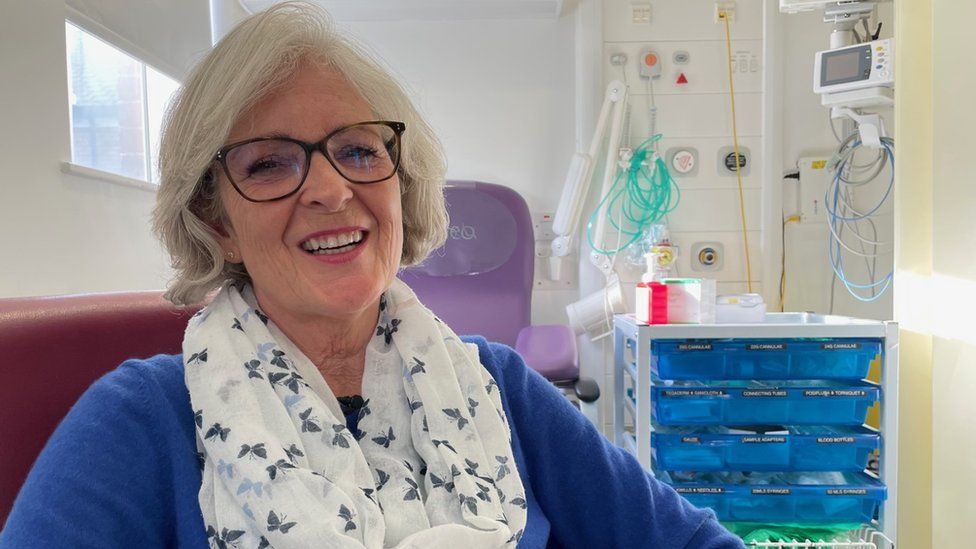
Artificial intelligence is nearly twice as good at grading the aggressiveness of a rare form of cancer from scans as the current method, a study suggests.
By recognising details invisible to the naked eye, AI was 82% accurate, compared with 44% for lab analysis.
Researchers from the Royal Marsden Hospital and Institute of Cancer Research say it could improve treatment and benefit thousands every year.
They are also excited by its potential for spotting other cancers early.
AI is already showing huge promise for diagnosing breast cancers and reducing treatment times.
Computers can be fed huge amounts of information and trained to identify the patterns in it to make predictions, solve problems and even learn from their own mistakes.
- What is AI and is it dangerous?
- AI named word of the year by Collins Dictionary
- Demis Hassabis: AI must not ‘move fast and break things’
“We’re incredibly excited by the potential of this state-of-the-art technology,” said Professor Christina Messiou, consultant radiologist at The Royal Marsden NHS Foundation Trust and professor in imaging for personalised oncology at The Institute of Cancer Research, London.
“It could lead to patients having better outcomes, through faster diagnosis and more effectively personalised treatment.”

The researchers, writing in Lancet Oncology, used a technique called radiomics to identify signs, invisible to the naked eye, of retroperitoneal sarcoma – which develops in the connective tissue of the back of the abdomen – in scans of 170 patients.
With this data, the AI algorithm was able to grade the aggressiveness of 89 other European and US hospital patients’ tumours, from scans, much more accurately than biopsies, in which a small part of the cancerous tissue is analysed under a microscope.
‘Quicker diagnosis’
When dental nurse Tina McLaughlan was diagnosed – in June last year, after stomach pain – with a sarcoma at the back of her abdomen, doctors relied on computerised-tomography (CT) scan images to find the problem.
They decided it was too risky to give her a needle biopsy.
The 65-year-old, from Bedfordshire, had the tumour removed and now returns to the Royal Marsden for scans every three months.
She was not part of the AI trial but told BBC News it would help other patients.
“You go in for the first scan and they can’t tell you what it is – they didn’t tell me through all my treatment, until the histology, post-op, so it would be really useful to know that straight away,” Ms McLaughlan said.
“Hopefully, it would lead to a quicker diagnosis.”
‘Personalised treatment’
About 4,300 people in England are diagnosed with this type of cancer each year.
Prof Messiou hopes the technology can eventually be used around the world, with high-risk patients given specific treatment while those at low risk are spared unnecessary treatments and follow-up scans.
Dr Paul Huang, from the Institute of Cancer Research, London, said: “This kind of technology has the potential to transform the lives of people with sarcoma – enabling personalised treatment plans tailored to the specific biology of their cancer.
“It’s great to see such promising findings.”

Sign up for our morning newsletter and get BBC News in your inbox.

Related Topics
- Health
- Artificial intelligence
- Cancer
Related Internet Links
-
Biopsy – NHS
